
The UK has many active offshore racing fleets, spanning from the west coast of Scotland on the Clyde to Essex and Kent in the North Sea, but the largest and most competitive racing is undoubtedly based on the south coast in the Solent.
Both the JOG (Junior Offshore Group) and RORC (Royal Ocean Racing Club) calendars have a great selection of summertime coastal racing in the English channel, most of which start in Cowes on the Isle of Wight. These races are a perfect introduction to offshore sailing, and are a good proving ground for teams who want to build up to a bigger goal such as next year’s Rolex Fastnet Race.
These Category 3 and 4 races vary in length from the 35-mile Lonely Tower Race to the more challenging 175-mile Cowes-St Malo race. The shorter races are just a long day on the water, whereas the longer ones mean spending a night (or more) at sea and take up a whole weekend.
THE START
Nearly all of these races start from fixed lines off the seafront in Cowes, with the landward end of the line being a yacht club flag pole ashore and a fixed outer distance mark (ODM). The ODM is sometimes not positioned on the line – there might instead be lights marking a transit and/ or a bearing defining the line. This might seem quite alien if you’re used to a classic committee boat starting sequence. As with all racing, being prepared and reading (and understanding) the sailing instructions is absolutely essential.
Esta historia es de la edición June 2024 de Yachting World.
Comience su prueba gratuita de Magzter GOLD de 7 días para acceder a miles de historias premium seleccionadas y a más de 9,000 revistas y periódicos.
Ya eres suscriptor ? Conectar
Esta historia es de la edición June 2024 de Yachting World.
Comience su prueba gratuita de Magzter GOLD de 7 días para acceder a miles de historias premium seleccionadas y a más de 9,000 revistas y periódicos.
Ya eres suscriptor? Conectar
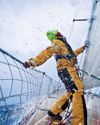
5 EXPERT TIPS BOB BEGGS ON SAILING IN COLD WEATHER
As temperatures drop, Andy Rice gets tips on how to handle the cold from self-confessed Arctic weather fan and winning Clipper Round the World Race skipper Bob Beggs
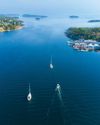
SPECIAL REPORT EXTENDED CRUISING IN THE BALTIC
Sweden offers cruisers a warm welcome for winter - Janneke Kuysters has advice on how to boost your sailing time in the region

NIKKI HENDERSON
SEARCHING FOR MORE SPEED? BEFORE TINKERING WITH TINY ADJUSTMENTS, MAKE SURE YOU'VE GOT THE BASICS RIGHT THE POWER DRIVING THE BOAT

MATTHEW SHEAHAN
WHAT WILL THE BOATS OF THE 38TH AMERICA'S CUP LOOK LIKE? THAT'S THE $20 MILLION QUESTION IF BRITAIN OR NEW ZEALAND DECIDE TO DEPART FROM THE AC75
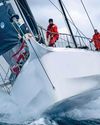
60-knot squalls hit Middle Sea Race
The 45th running of the Mediterranean offshore, the Rolex Middle Sea Race, saw a spectacularly random mix of conditions - even for a race which is famed for its variable weather patterns.
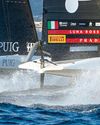
Italy win first Women's Cup
The first ever Women's America's Cup was won by Luna Rossa Prada Pirelli after a single, twoboat shoot-out final on 12 October.

'Three-peat' for ETNZ
As Defender, Emirates Team New Zealand came into this year's 37th America's Cup as clear favourites. But the Kiwi camp has far more than just the structural advantage of being the ones that wrote the Protocol for the competition, and the originators of the AC75 concept.
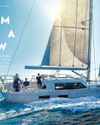
ROOM WITH A VIEW
SWEDISH DESIGNER GABRIEL HEYMAN POURED A LIFETIME OF IDEAS INTO THIS PILOT SALOON CRUISER, WHICH INCLUDES ARGUABLY THE LARGEST COCKPIT AVAILABLE AT THIS SIZE
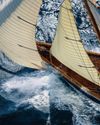
LIVING HISTORY
THE ICONIC SEASON-CLOSING REGATTA LES VOILES DE SAINT TROPEZ WAS AN IMMERSIVE HISTORY LESSON FOR CROSBIE LORIMER
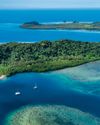
CHANGE OF PLAN
LEAVING AUSTRALIA, MARIANNE URTH NEVER PLANNED TO MAKE LANDFALL IN THE ISLANDS OF VANUATU, BUT THE EXPERIENCE WAS MAGICAL